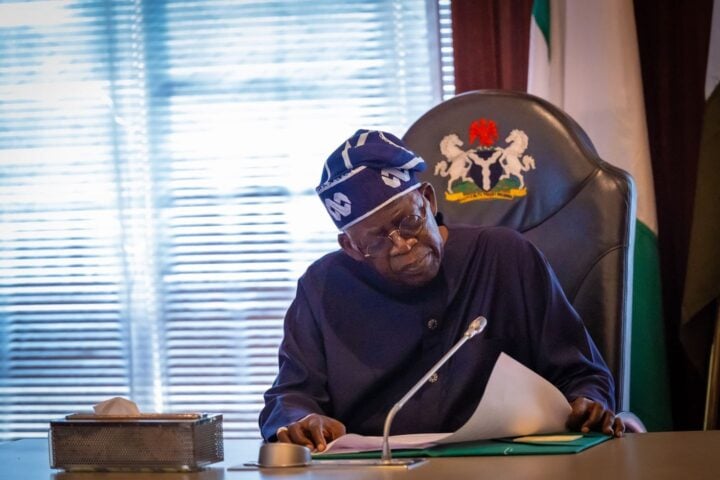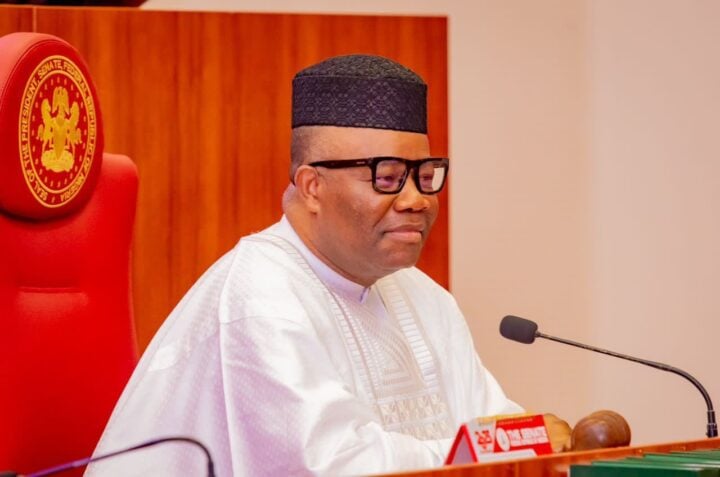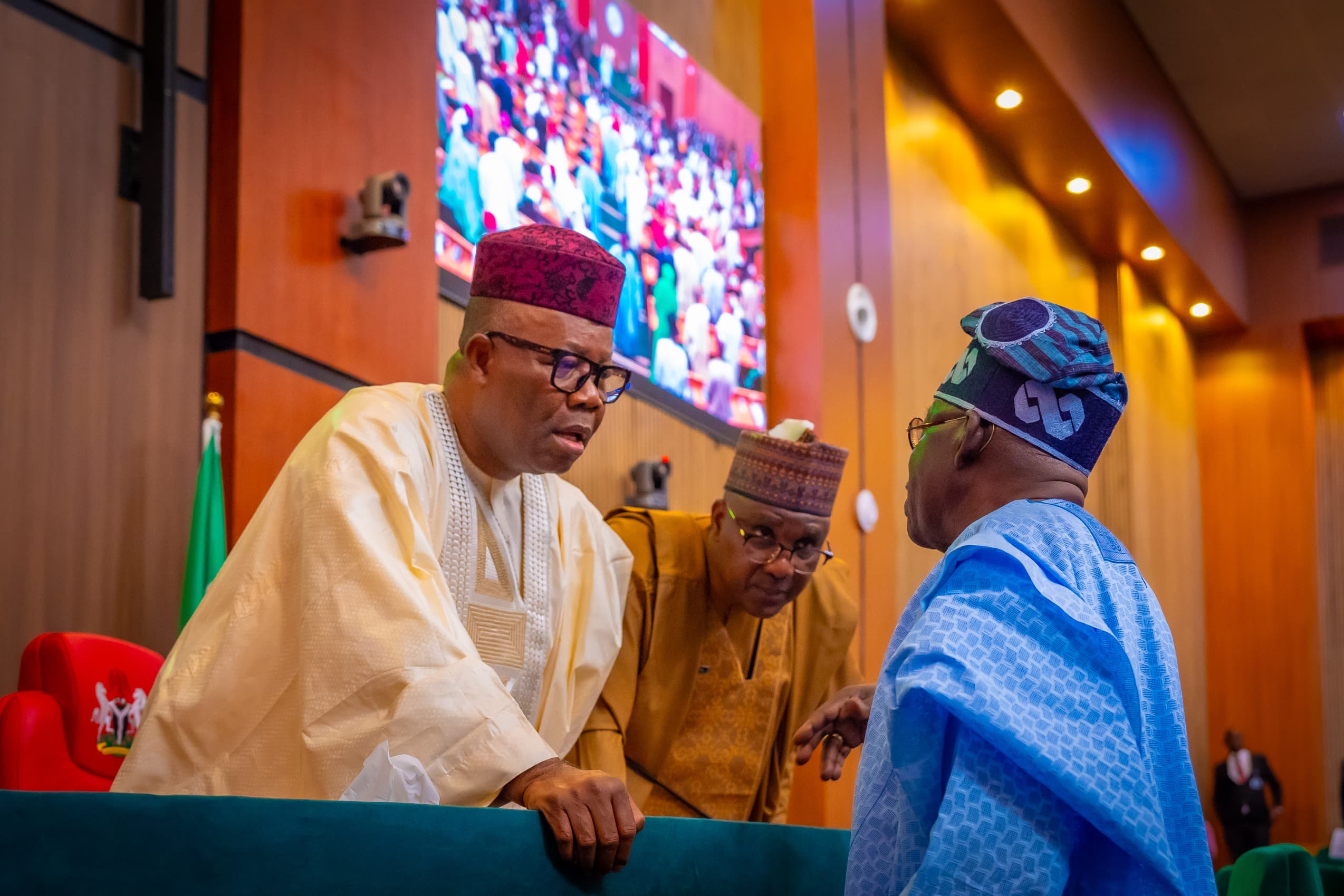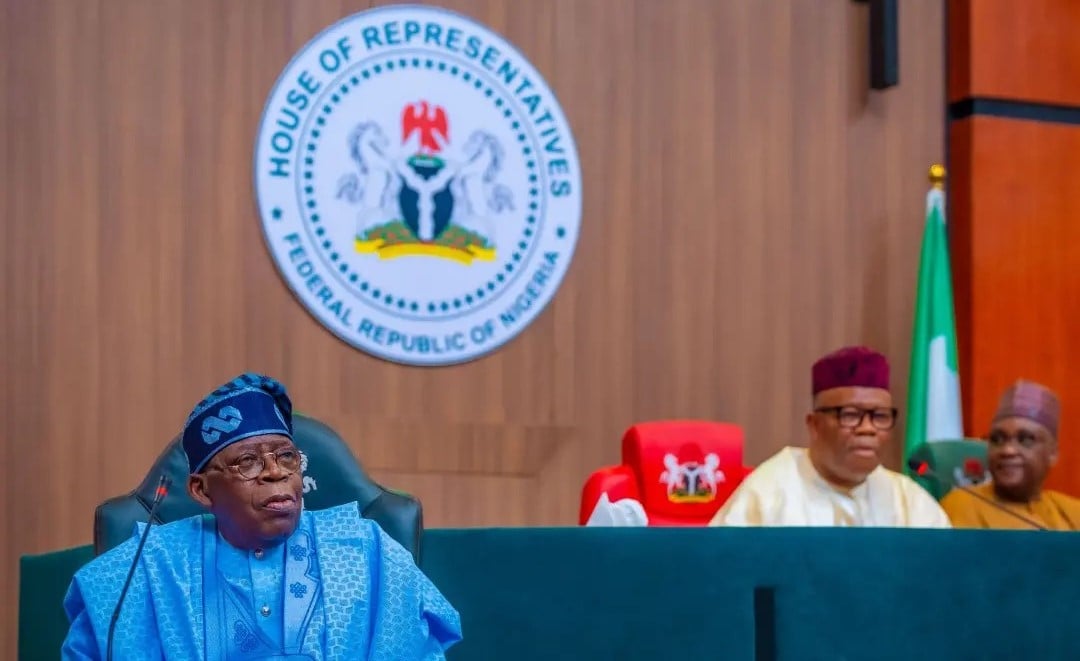President Bola Tinubu
Economic analysts have expressed concerns about the impact of multiple reforms implemented by President Bola Tinubu‘s administration, emphasising the need for effective measures to mitigate the effects on citizens and businesses.
On May 29, 2023, Tinubu was sworn in as the president — on the same day, he announced the end of petrol subsidy.
A few days later, the Central Bank of Nigeria (CBN) announced the unification of all segments of the foreign exchange (FX) market, collapsing them into the investors and exporters (I&E) window.
Also, on April 3, the Nigerian Electricity Regulatory Commission (NERC) approved an increase in electricity tariff for customers under the Band A classification.
Advertisement
The commission said customers under the category, who receive 20 hours of electricity supply daily, would begin to pay N225 per kilowatt (kW) from April 3 — up from N66.
While these reforms aim to drive economic progress, they have resulted in significant economic hardships for businesses and households.
‘INEVITABLE REFORMS’ | ’40/100 PERFORMANCE’
Advertisement
Muda Yusuf, the chief executive officer of the Centre for the Promotion of Private Enterprise (CPPE), said the reforms introduced by the current administration are inevitable for progress.
“The point of stress is that much of the first year was devoted to corrective reforms which were in many instances also painful,” Yusuf said.
“But the reforms were inevitable because you can’t build something on nothing. Fixing the economic fundamentals was crucial for economic sustainability.
“However, I believe the administration could do better with regards to the speed of delivering mitigating measures to ease the pains of the reforms.”
Advertisement
Yusuf further said the administration has made significant progress in restoring some sanity to the oil-producing areas — even though it is a work in progress.
“The truth is that reforms take time to be conceptualised and executed. It could take even longer for the results to be felt. But my view is that the reforms were necessary to pull back the economy from the brink,” he said.
“Much has been achieved with fiscal consolidation. Government revenue had improved significantly following the reforms. There were also tax reform initiatives.”
Charles Abuede, the research lead at Cowry Asset Management, said despite these reforms there has been “little or no improvement in the security architecture, rising food and commodity prices, amongst others”.
Advertisement
“The present administration has enacted various reforms since assumption of office till today and for the record, we have local and international businesses as well as consumers feeling the brunt,” Abuede said.
“In one year, we have seen the exchange take a different turn and the effects are what is obtainable today.”
Advertisement
Also, Ayokunle Olubunmi, head of financial institutions ratings at Agusto & Co, said there were some high points and low points to the reforms.
According to Olubunmi, the reforms could be seen as the administration laying the foundation – even though it might be hard for Nigerians.
Advertisement
“I know there are a lot of downsides. The exchange rate has been volatile, market devaluation we saw last year. If you check insecurity, it doesn’t seem to be getting better. Right now we can see that of food inflation. Farmers are finding it difficult to go to the farms and inflation is also increasing,” he said
“The power sector too, the situation seems to be worse. We get to hear almost every time that our system collapses.
Advertisement
“Another issue has to do with the following various policy reversals. Announcing something today and changing it tomorrow. Examples are cybersecurity, the return of the UAE visas and Emirates Airlines. It got to a point people had to start fact checking messages from the president.
“I think it is too early to properly judge them. There are some good parts of what they’ve done and then some down paths toward what they’ve not done properly.”
Olubunmi and Abuede rated the performance of Tinubu’s administration 40 out of 100.
‘FG SHOULD FOCUS ON SECURITY, AGRICULTURE, SERVICES SECTOR’
Speaking further on sectoral growth, Olubunmi said he believes the sector that seems to be getting a lot of attention is the financial sector.
“Specifically, I think this is everyone’s critique of the government. Everyone agrees that the CBN seems to be the shining star and where the administration seems to be focused on,” he said.
“More so, I don’t think communication is good enough. What they are doing is that they are not communicating well.”
Olubunmi also said agriculture and security lacked attention, especially to slow down food inflation.
On his part, Abuede said all sectors of the economy have been functioning just like we saw from the last administration.
However, he believes the services sector should be targeted for more economic growth.
“A look into the latest GDP report for Q1 2024, we can see the continued growth in the services sector which still has more room for growth if enough investment can be channelled there,” Abuede said.
“So, there’s really no sector which saw the most benefits as we can literally not get hands on FDI inflow into the sectors. Instead, decline.”
‘CONSISTENCY MOVING FORWARD TO GROW ECONOMY’
On what areas to focus on moving forward for economic growth and achieving the $1 trillion economy goal, Abuede said the government’s focus should be encompassing and holistic to ensure all-round sustainable growth.
“Areas needing major attention include security and defence, agriculture, increase in crude oil production, trade and investment, mining and power,” he said.
Abuede added that achieving a $1 trillion economy is “ambitious”.
“I think we need to experience a high growth rate annually to achieve it. Nigeria at the moment is growing at an average pace of two percent,” he said.
“But to achieve sustainable growth, Nigeria needs to grow at a minimum average of 7-10 percent annually for 10 years or to grow at 5-6 percent and exhibit strong momentum to achieve a near figure.
“Remember, Nigeria currently sits third on the largest economies in Africa behind Egypt and South Africa.”
On his part, Yusuf said he believes the administration could do better with regard to the speed of delivering mitigating measures to ease the pains of the reforms.
“There is also a need to address the volatility in the foreign exchange market. Frequent swings in the exchange rate are very detrimental to business because of the uncertainty that comes with it,” he said.
Yusuf added CBN should also address the frequent changes in exchange rates for import duty computation.
“This rate should actually be fixed at N1000/$ or even less to subdue current inflationary pressures,” he said.
Corroborating their points, Olubunmi said the power sector, insecurity and communication should be focused on.
“If the government can get those three things right because I believe those three things are like foundations that need to be fixed before we can grow the economy.”
In addition, he said achieving a $1 trillion economy projection is not feasible in the first tenure of Tinubu’s administration unless something changes drastically.
Add a comment






